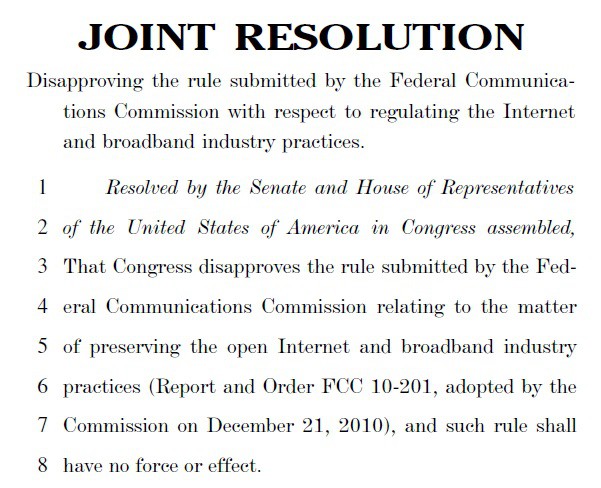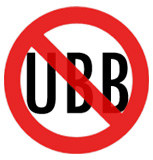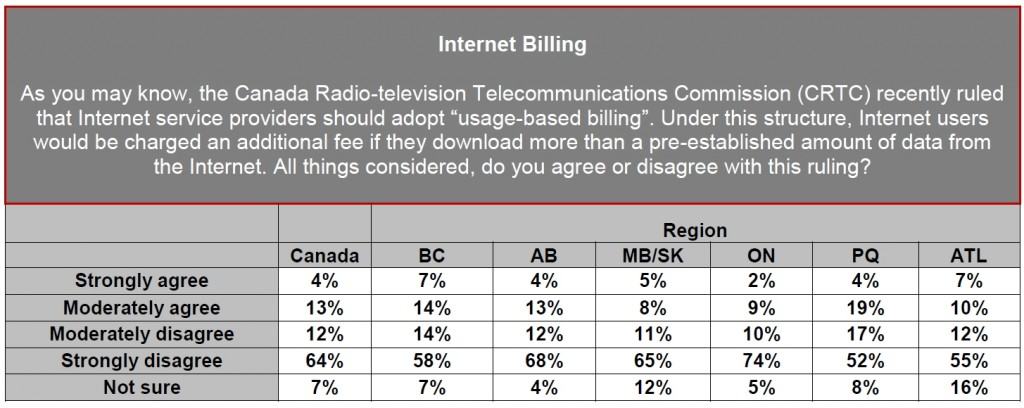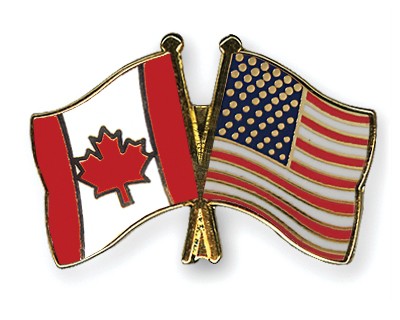 Watching two governments — one in Ottawa, the other Washington — debate important broadband issues has been an illuminating experience for this American. As Canada continues to deal with a firestorm of protests against broadband pricing ripoffs from usage-based billing, the debate over Net Neutrality achieved new levels of absurdity in Washington yesterday as a largely Republican crowd fought to overturn the FCC’s watered-down open Internet protection policies.
Watching two governments — one in Ottawa, the other Washington — debate important broadband issues has been an illuminating experience for this American. As Canada continues to deal with a firestorm of protests against broadband pricing ripoffs from usage-based billing, the debate over Net Neutrality achieved new levels of absurdity in Washington yesterday as a largely Republican crowd fought to overturn the FCC’s watered-down open Internet protection policies.
Watching and listening to a combined eight hours of hearings both north and south of the border this month has cast a striking contrast between our two governments. After it was all over, I can forgive anyone who decides Congress is filled with a bunch of uninformed meat-heads who fight for the talking points attached to their fat contribution checks from the telecommunications industry.
It is unseemly watching Republicans fall all over themselves to impress AT&T, Verizon, and Comcast with their grasp of these companies’ arguments against an open and free Internet. There are also some bad Democrats on AT&T and Verizon’s virtual payroll, but the hearings this week in the House of Representatives were over the top — a Republican Valentine’s Day present for Big Telecom, replete with clueless representatives who clearly don’t understand the concept of Net Neutrality beyond the 3×5 index cards handed to them by one of their respective staffers. For the most reactionary members, handing out photoshopped-pictures of Leon Trotsky hugging Barack Obama in front of a spool of fiber optic cable would have been just as effective.
The deservedly-undercovered Judiciary Committee hearings featured a single wireless ISP (WISP) owner who appears to spend most of his free time writing in the Comment sections of major American newspapers and social media sites. His concern? A technicality in the current Net Neutrality rules about customers running web servers. ServerGate. There’s a hot button issue if there ever was one. Brett Glass’ customers are much more interested in watching online video, a concept that frightens a lot of WISP owners into placing usage caps on their service to discourage them from doing that.
Another witness at that hearing came straight from a telecom industry funded think tank. Inviting AT&T to appear themselves would have effectively cut out the middleman and saved everyone a whole lot of time.
Gigi Sohn from Public Knowledge was left alone to stick up for Julius Genachowski’s cowardly-lion Net Neutrality rules, which in this author’s opinion are barely better than nothing, fatally flawed and one court decision away from oblivion.
Yesterday’s hearing featured FCC Commissioners on a partisan griddle as members of Congress asked softball questions of those they favored, and strafed the ones they don’t with long-winded lectures.
Republican members had no time for stories of Providers Gone Wild, particularly Comcast’s secret squeeze of its customers’ broadband speeds when running peer-to-peer software. Such stories conflict with their talking point world view that broadband from the private sector should be run any damn way they please. When some go to far, “they are isolated incidents” claimed Republican members, to the nodding affirmation of the two Republican commissioners.
Julius Genachowski was reduced to defending his homeopathic net regulations as a regulatory “light touch” — like a dew kissed raspberry on a summer morning. But representing regulation as harmless didn’t do him any favors, because he forgot his audience.
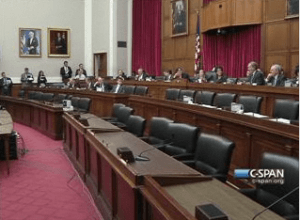
Drive-by Hearing: For much of the hearing, C-SPAN cameras caught most of the seats empty as members came and went.
No argument about moderated government regulation is ever going to fly in a room with members like Rep. Marsha Blackburn (R-Tenn.) who spent her five minutes of talk time scorching the FCC for holding up the Comcast-NBC merger with questions. How. dare. they.
Congressional hearings used to be about fact finding and allowing members to educate themselves on the issues before casting their votes. No more. These days, hearings are an exchange of preconceived talking points as members switch between grilling or ignoring the witnesses they don’t like while fawning over those they do.
GigaOm called the entire affair “nauseating” and helpfully condensed the only three things you need to take from the hearings:
- FCC Chairman Genachowski said the Level 3 and Comcast debate over access to Comcast’s last mile subscribers is a business issue and not a net neutrality issue.
- FCC Commissioner Robert McDowell resurrected the ghost of unlicensed white spaces and set it up as a competitive threat to existing ISPs. He then used that threat of eventual competition to argue we no longer need net neutrality rules. I tend to agree that if we had robust broadband competition, we wouldn’t need network neutrality, but according to McDowell, white spaces aren’t dead. If they aren’t dead, that’s important.
- The FCC will keep the docket open on its effort to reclassify broadband, which would give the FCC the legal authority under existing laws regulate broadband as a transportation service (the so-called Title II authority). This is a good thing for network neutrality fans, as the existing net neutrality rules will likely be challenged in court, and keeping that docket open leaves a back door for the FCC to implement rules. However, the industry hates the idea of reclassification and will fight it tooth and nail. It also means more hearings, comments and arguments over the entire issue.
Contrast this with more than a week of hearings in Canada on usage-based billing. The differences are nothing less than striking. Members attending those hearings were well-informed about most of the issues surrounding the usage-based billing debate and aside from the occasional minor grandstanding and long-winded questions, got to the bottom of the issues at hand and were prepared to challenge assertions made in all sides of the debate. They even pronounced everything correctly. A 10 minute exchange over the pricing formulas for Bell’s wholesale Gateway Access Service (GAS) probably won’t get you a soundbite on the evening news, but it will enlighten a member of Parliament about just how unjustified these pricing schemes are.
Not so in Washington, where net policy nuance is a French word meaning “weakness” or “socialist takeover.”
Bell Canada must surely wish they lived in a country where the hired help in Congress can reflexively support whatever is on the company’s agenda… for the right price. For the moment, they are stuck exchanging Valentines with their close friends at the Canadian Radio-television and Telecommunications Commission, most of whom came from the industry they now regulate.
Minutes after Washington’s hearings ended, several Republicans, with their minds already made up, introduced a Joint Resolution to override the FCC’s authority on Net Neutrality and sweep the free and open Internet into a dustbin. There are new owners of the Internet in town and it’s past time you got used to it — they are AT&T, Verizon, and Comcast. Your bill is in the mail. You can thank us now or later.


 Subscribe
Subscribe
